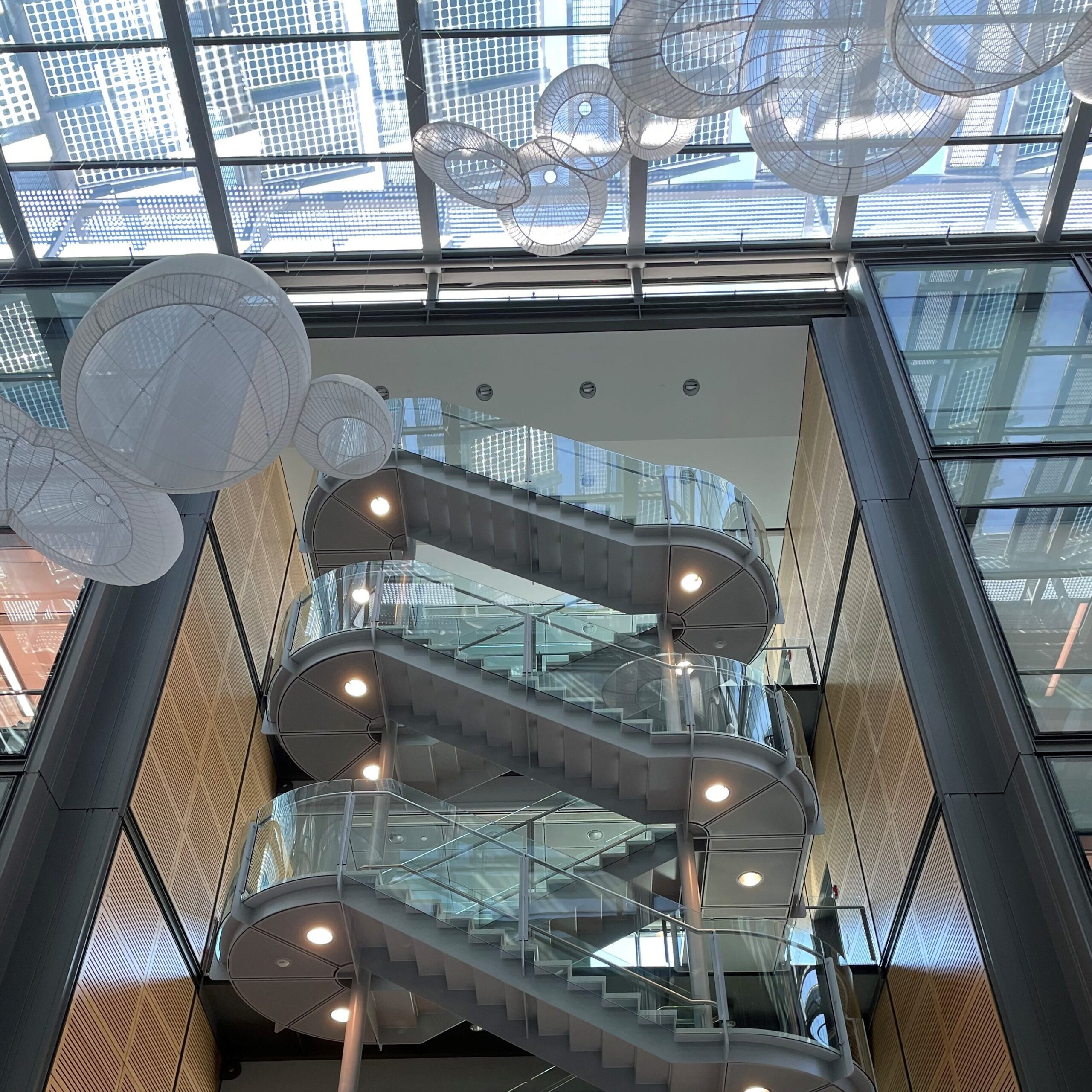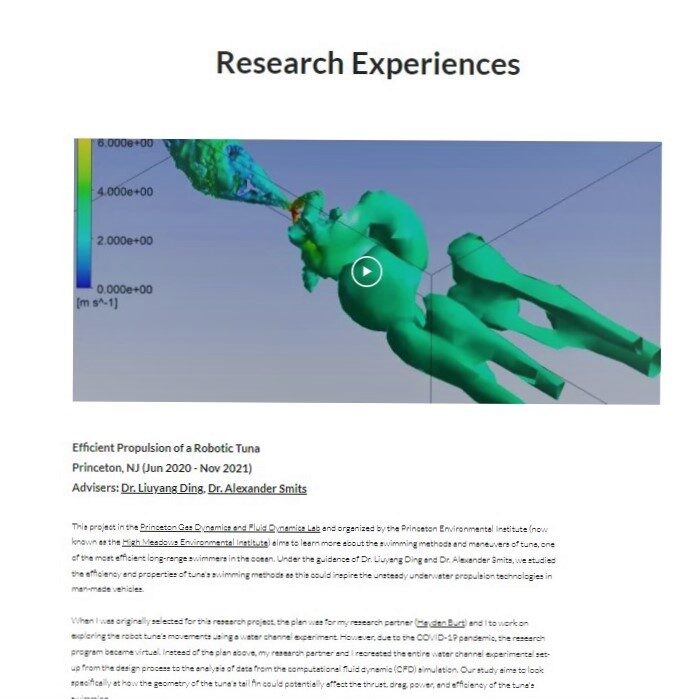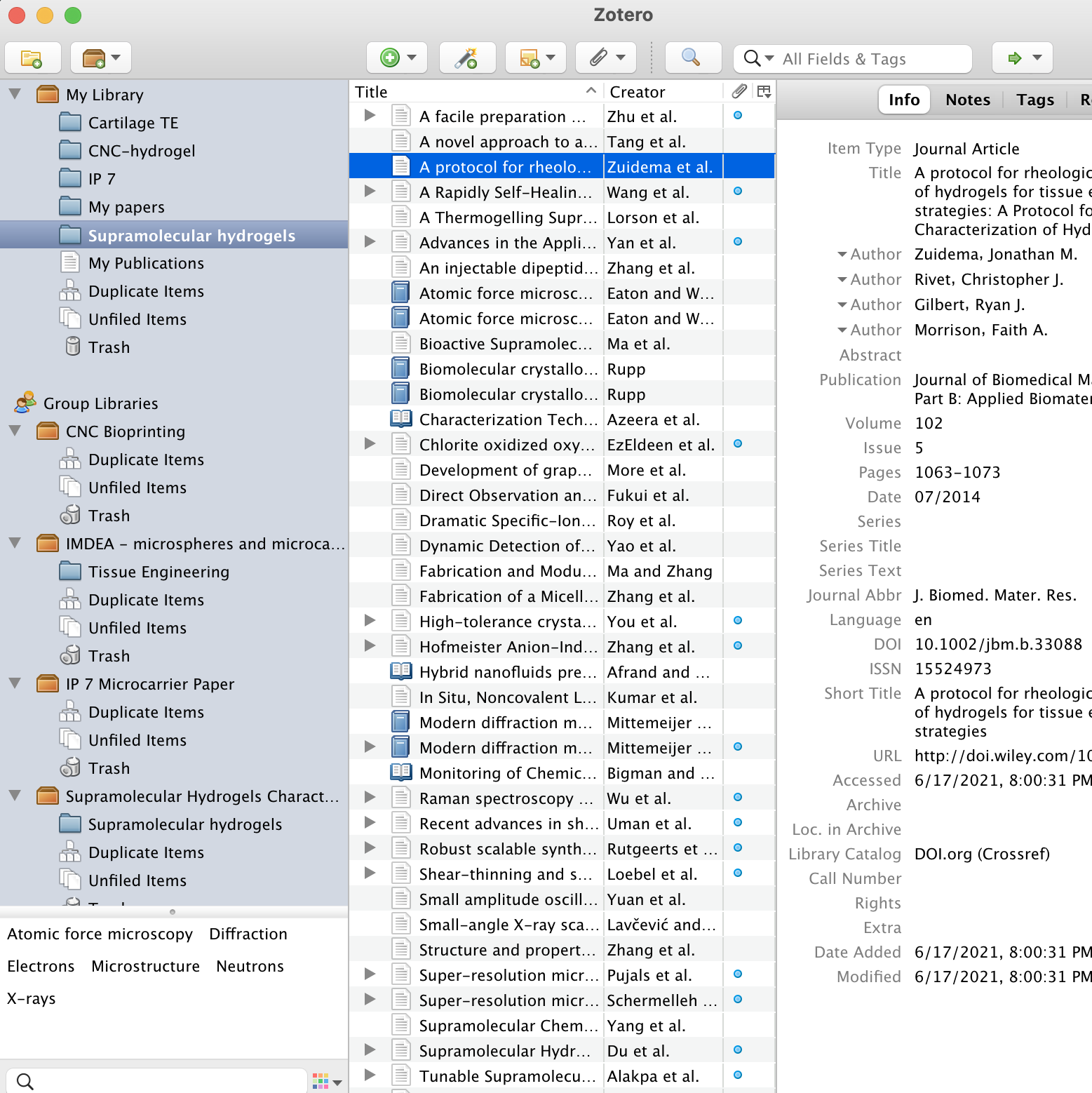In the fall of 2021, I worked in the Computational Turbulent Reacting Flow Laboratory under the guidance of Professor Michael Mueller. In the Mechanical and Aerospace Engineering (MAE) department, junior independent research is optional. I enrolled in MAE339: Junior Independent Work in the fall and am currently continuing my research this spring semester. Research was an integral part of my high school experience, and I was excited to start working on independent research in my junior year of college in a different setting. Now, I want to share a few of the lessons I learned from this past semester with you:
Tips on Effectively Learning Vocabulary Words for Foreign Languages
As a senior concurrently enrolled in two Persian classes and working on completing a minor in German, I am no stranger to learning vocabulary words. To be frank, however, I have rarely enjoyed this process. From awkwardly jotting down words in the middle of conversations to hunting for their precise definitions and usages, I have found learning vocabulary to be more difficult and painstaking than the simple memorization task it is made out to be. The worst of all has been forgetting a vocabulary word I have studied or even failing to correctly identify a word, realizing after the fact that I ‘knew’ what it meant but couldn’t tease out the meaning in the moment.

Lessons from My First Major Research Essay
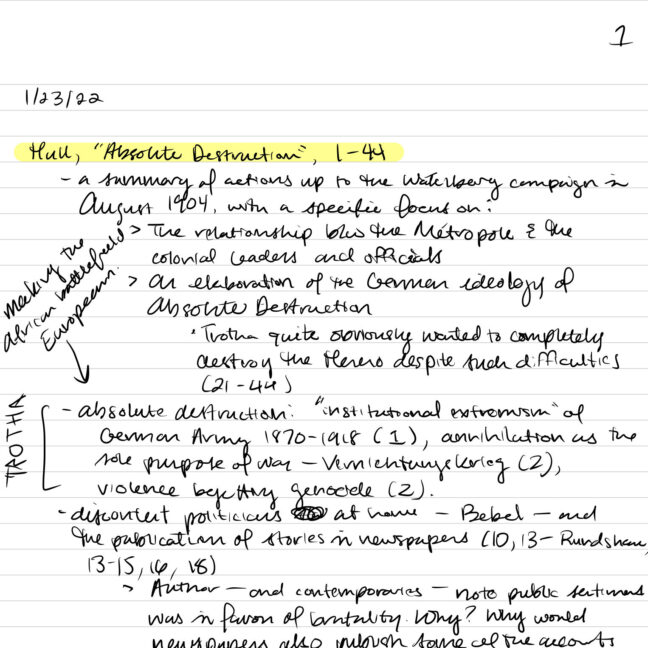
As I dive into my second junior paper, I’ve begun to realize how much more serious this paper is than the first one. Gone are the safety rails once provided by Princeton’s History department; instead of a course with concrete deadlines, I am now in the metaphorical Wild West, negotiating with my advisor on a whole bunch of elements: deadlines, research content, framing, among others. Even though it is only February when I write this, the April deadline eyes me ominously. With four classes and an array of extracurricular activities, whatever will I do to survive my second JP? How can I even anticipate the thesis?
At PCUR, we’ve done plenty of reflections on our prior research experiences. The more I think about it, the best thing to do is to reflect on my first JP. In that paper, I explored the attitudes and ideologies of consumption that post-war consumers held, particularly in relation to an acute shortage of nylon stockings. Sifting through dozens of articles in local newspapers, I identified many letters to the editor that female consumers sent in to voice their opinion about how nylons should be distributed, who deserves them, and how the shortage was affecting their everyday lives.
Although I am undoubtedly proud of the final product, there were many things I could improve about it. From the way I kept sources and my reading schedule to my writing method and the final editing process, I could enumerate an endless list. For now, I will highlight two of the biggest takeaways from my first JP, which will be particularly useful given the abbreviated timeline of the second paper.
Continue reading Lessons from My First Major Research EssayGet Your Independent Work Done Without Stress
As a B.S.E junior doing independent work for the first time, I am already anticipating the stressful cram at the end of the semester that comes with senior thesis and junior independent work deadlines. As busy Princeton students, we often don’t think that we have enough time in the week to work consistently on our independent work, and thus, a lot of it inevitably gets pushed off to the weeks (and days) before the deadline. But it doesn’t have to be this way. Putting together a comprehensive plan to organize and budget your time at the beginning of the semester can save so much hassle down the road. Therefore, I think it will be helpful to walk through how to create a plan for independent work over the course of the semester.
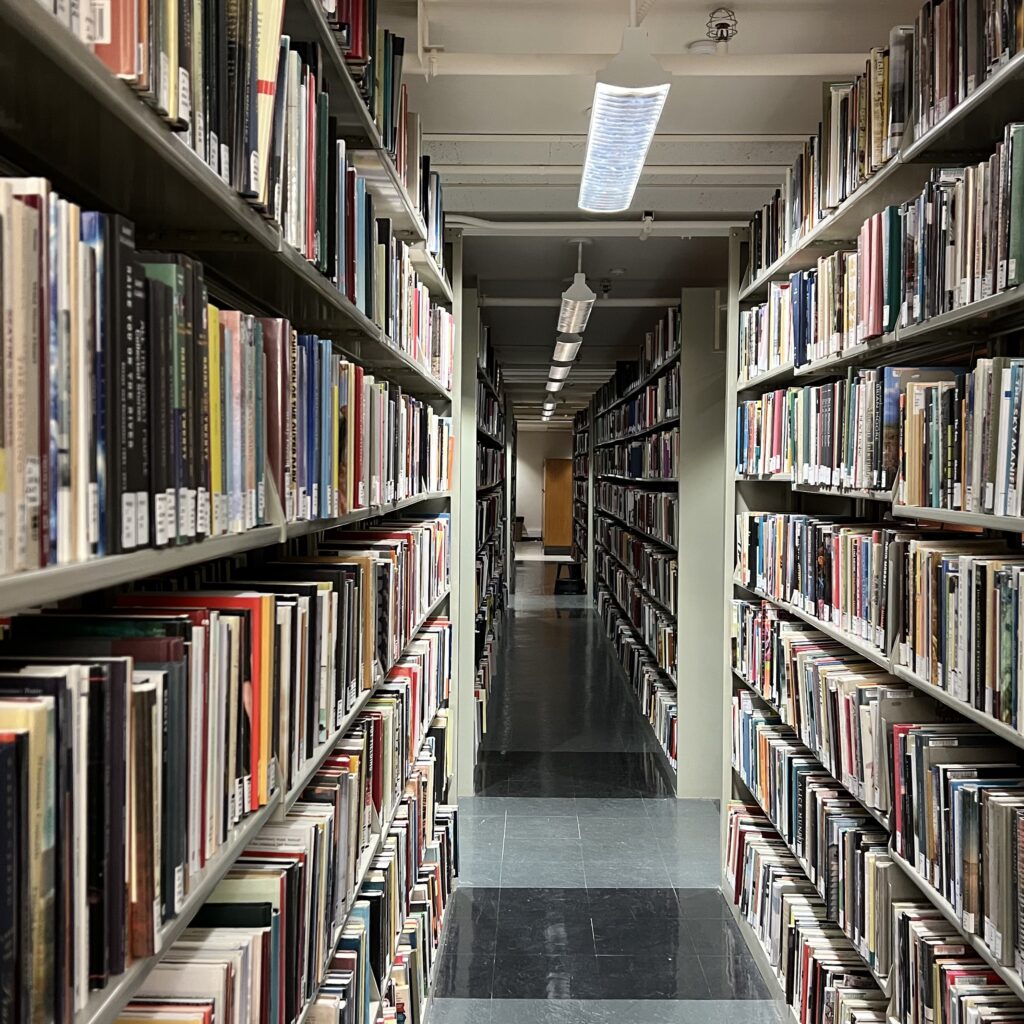
What are First-Years Researching? An Interview With My Legendary Zees
On campus, I am a Residential College Adviser in Whitman College. It is by far the most meaningful part of my Princeton experience and I am thankful every day to have such amazing advisees (zees). In the fall, I decided to interview some of my zees on the incredible research that they have done on campus and how they became involved in this research. My freshmen show that research does not always mean working in a lab or on a senior thesis like many often assume. There are so many different ways to become involved with research on campus, whether it’s through writing a paper or joining an academic club. My hope is that seeing the research that my zees did last semester will inspire you to do your own and also show you what research on campus can look like for first years. So, without further ado, here is the research conducted by the most legendary zees of all time:
Continue reading What are First-Years Researching? An Interview With My Legendary ZeesTips on Finding, Joining and Thriving in a Research Lab!
With the COVID-19 pandemic, my ability to participate in lab work, which I had imagined would be a key part of my university experience, was quite limited. While my remote research experiences taught me many interesting skills, such as using computational tools like Gaussian and PyMol, I was eager to start lab work in-person once restrictions allowed for undergraduate research. With my previous remote internship during the Leach Summer Scholars Program, I continued working with the Knowles lab with my summer mentor on a new project. I wanted to share the lessons I’ve been learning after my first few months in the lab which I hope will be helpful and relevant for you!
Continue reading Tips on Finding, Joining and Thriving in a Research Lab!Now is the perfect time to build your personal portfolio!
Have you ever left an interview wishing you remembered to mention that project you did in class? Or do you have a broad range of interests and experiences that do not fit on a one-page resume? Have you ever built something really cool and wanted to show everybody but were not sure how? You can answer all of these issues with your own personal portfolio.
A portfolio is similar to a resume in that it showcases your work and achievements, but it is more flexible in that it can take different forms and include all types of media. It can be helpful to share with recruiters and interviewers during your career search, and you can ensure recruiters come across it by sharing a link to it in your resume! It is probably the most underrated career search material, and taking the time to craft your own portfolio is already a huge step to making yourself stand out.
Continue reading Now is the perfect time to build your personal portfolio!Graduate Studies and Careers in Public Service: an Interview with Professor Iqbal Zaidi – Part 1
In one of my previous posts about taking advanced courses in Princeton, I mentioned that I ended up taking two courses with Professor Iqbal Zaidi – ECO 353 (International Monetary Economics) and this fall, ECO 322 (Econometric Tools for Research in Macroeconomics) – both of which turned out to be some of my favorite experiences at Princeton. I recently interviewed him to know more about his career and how he came to specialize in international macroeconomics. After completing his Ph.D. from Princeton, Professor Zaidi worked for three decades at the International Monetary Fund (IMF), working in several positions and going on to serve on its Executive Board and manage IMF offices in Africa and Asia. He is now back at his alma mater, teaching specialized courses in macroeconomics. He also serves as an A.B. Academic Adviser.
I am dividing the interview into two parts. In the first part of my interview with Professor Zaidi, I concentrate on his career – specifically, what made him join the IMF after completing his Ph.D. at Princeton. The second part continues with his experience at the IMF and we then segue into his life in academia and what he loves about teaching and advising in Princeton.
Continue reading Graduate Studies and Careers in Public Service: an Interview with Professor Iqbal Zaidi – Part 1New to Zotero? A Guide to Using Reference Management Applications
Before this summer, I had never heard of Zotero, Mendeley, or any reference management applications, and instead, I usually turned to APA or MLA style guidelines and did my citations by hand. However, it can be cumbersome to manage all the references at once, especially when writing papers that have a seemingly never-ending list of references. This is where Zotero or Mendeley can help out. I first started using Zotero during my summer internship when I was writing two biomaterials review papers, which I mentioned in my last post. Both of these papers had around 120 references, making a reference manager like Zotero an essential tool for keeping track of all the citations.
I would highly recommend using a reference manager for longer projects or papers, such as for junior independent work or senior theses, because it helps with organization and saves you time when adding references. In this post, I put together a guide for using reference managers, specifically Zotero because I am most familiar with it. However, take a look at this previous post on using Mendeley if you want to learn more about that.
Continue reading New to Zotero? A Guide to Using Reference Management ApplicationsBeing in the Archive: Navigating the Space and Etiquette
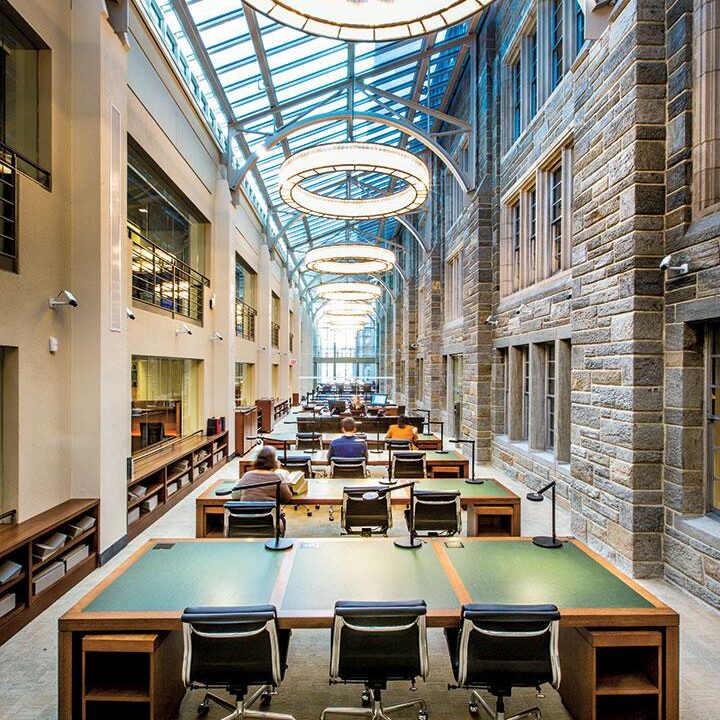
In the first article of this archival tour, I talked about the process of identifying the proper archives to further your research. But what happens next, once you have the archive, the collection, or the item you want? How do you proceed from there? For the purposes of this article, I will assume you are physically at the archive because we already have some great articles about requesting items from archives that you cannot physically be in. Here, then, I’ll talk about navigating the spaces of the archive and their uses, as well as some facts about archive etiquette.
Instead of dallying around, let’s jump back into the archive!
Continue reading Being in the Archive: Navigating the Space and Etiquette

